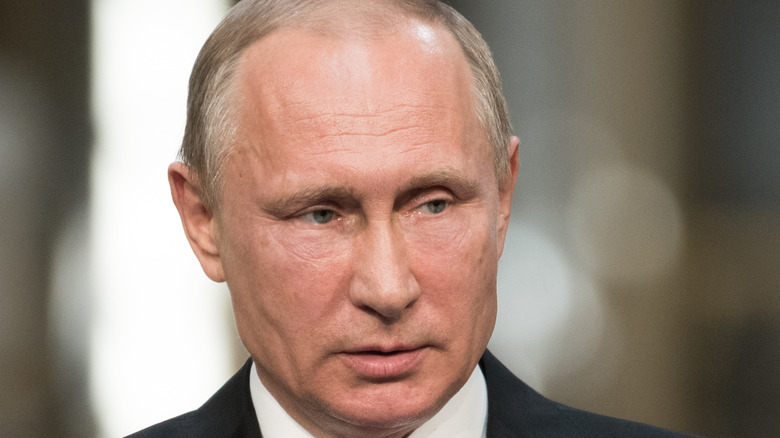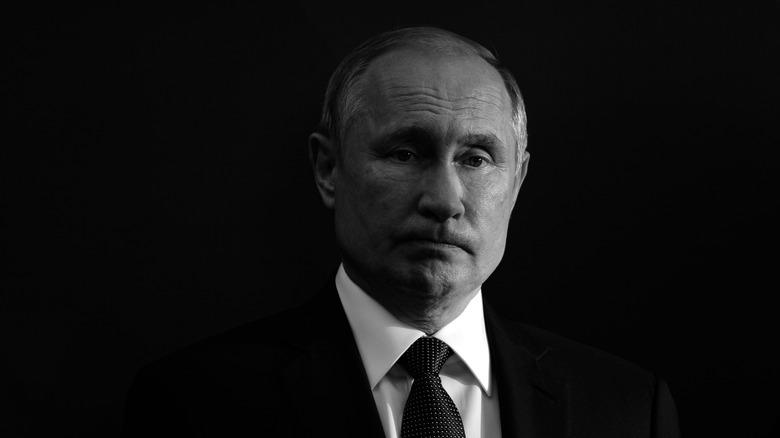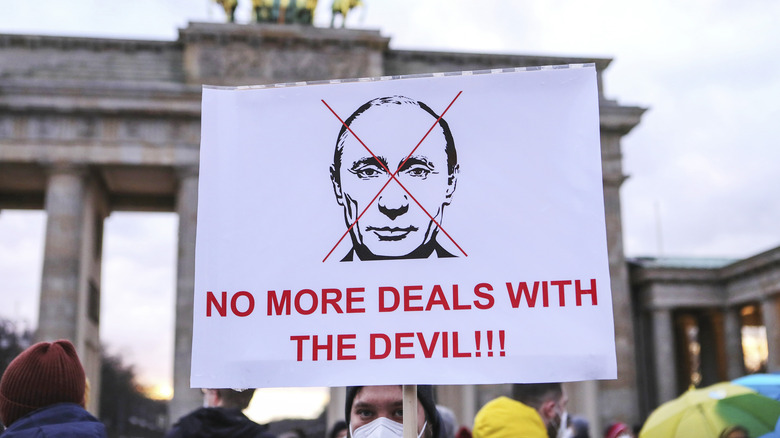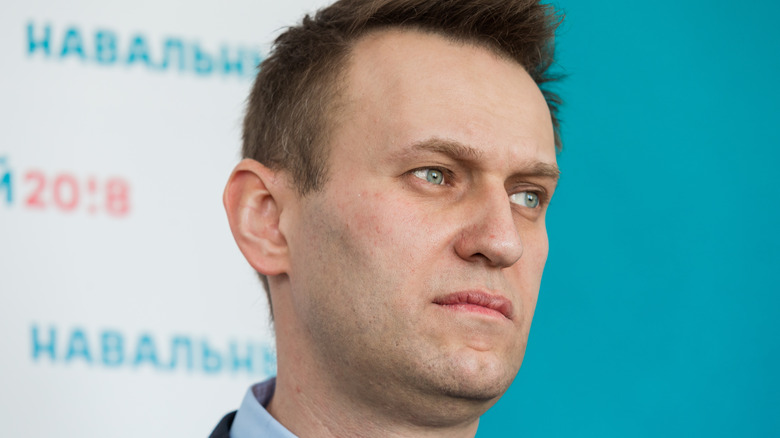The Real Reason Russian Presidents Have Lifetime Immunity Now
To say Vladimir Putin's rise to power was meteoric is an understatement. Biography writes that he swiftly went from being a KGB spy to becoming the president of Russia. How did this occur in the first place? According to HistoryColored, Putin spent 15 years in the KGB before making his way into politics. After the collapse of the Soviet Union, he took a job at the University of Leningrad with his mentor and friend, Anatoly Sobchak. In 1991, Sobchak became the mayor of St. Petersburg and brought Putin on as an advisor. Within the next few years, Putin climbed to the top of Russia's political ladder.
Britannica reports that he eventually joined the presidential administration and by 1999, then-president Boris Yeltsin had appointed Putin as prime minister. He's been in power ever since. Putin was officially elected as president in 2000 and served until 2008 (via Fox Business). Diario AS explains that at this time, Russian presidents could only serve two consecutive four-year terms. Of course, this was a problem for Putin's authoritarian rule, but he was not deterred. His longtime friend and supporter Dmitry Medvedev subsequently became president, keeping Putin in power behind the scenes.
Putin could be in power until 2036
Per CNN, Medvedev changed the presidential term from four years to six while he was in office. In 2012, Putin once again became president and was re-elected in 2018. However, under Russian law, he still could only serve two consecutive terms (per Diario AS). In 2020, Putin decided to change that rule once and for all. According to The Guardian, a series of amendments were approved by the Russian government in the summer of 2020. This included changing the rule forbidding more than two consecutive terms. Another change: providing presidents immunity for any crimes they committed in their lifetime.
In other words, after Putin's second six-year term ends in 2024, nothing can stop him from running for president again and again after the end of each of his terms (via France 24) . Ultimately, this means that Putin could be Russia's president until 2036, when he's in his early 80s. This would make him the longest-serving ruler since Joseph Stalin, per The Guardian. This could very well be possible, as Newsweek writes that he signed this law in April 2021. Putin said his reasoning behind this was to keep his deputies in check instead of "darting their eyes in search for possible successors."
Putin will face 0 repercussions for his human rights abuses
In 2020, Putin signed legislation that guaranteed that Russia's presidents and their families will not be prosecuted for any crimes that they commit in their lifetime (via The Guardian). Previously, the law only applied to crimes committed while a president was in office.
Putin's Russia is notorious for its various human rights abuses. According to Amnesty International, this includes the persecution of anyone who speaks up against his regime and people in the LGBTQ community. The Commission on Security and Cooperation in Europe reports that Putin has activists and critics imprisoned, tortured, or murdered.
Amnesty International notes these conditions have only worsened during the COVID-19 pandemic. Putin used the pandemic as an opportunity to take even more control of the country, suppressing Russian society at every chance he gets. His new law, as Al Jazeera explains, will prevent him from ever facing justice. He will be neither arrested, searched, nor questioned. Putin signed the law only a day after Alexei Navalny, a Kremlin critic and anti-corruption campaigner said he swindled a Russian spy into admitting he had been poisoned by the Russian government (per CNN).
The poisoning of Alexei Navalny
According to the BBC, Navalny is a blogger and fierce critic of Putin's regime. On August 20, 2020 he fell ill while on a flight from Siberia to Moscow (via Al Jazeera). Navalny later told "60 Minutes" that he instantly knew he had been poisoned and was dying. He was taken to a Siberian hospital before being airlifted to Germany's Charite hospital. There, officials discovered that he had been poisoned with Novichok, a nerve agent that was created during the Cold War.
He believes that someone poisoned him while he was in his hotel in Siberia. He was put in a medically induced coma and survived but spent months in recovery. Ultimately, Navalny fully believes that the Russian government, and more specifically, Putin, wanted him dead. The Kremlin, however, heavily denied they were involved and said Navalny was sick from stress and other factors.
In December 2020, CNN reported that Navalny claimed he had tricked a Russian spy into admitting that they had in fact poisoned him and had a recorded phone call to prove it. Despite this, the government said that the recording was fake. Navalny eventually left Germany in January 2021 and returned to Russia only to be arrested on a fraud conviction from 2014, per NPR. As of 2022, The Guardian writes that Navalny is still incarcerated and is facing up to 15 more years in prison.



